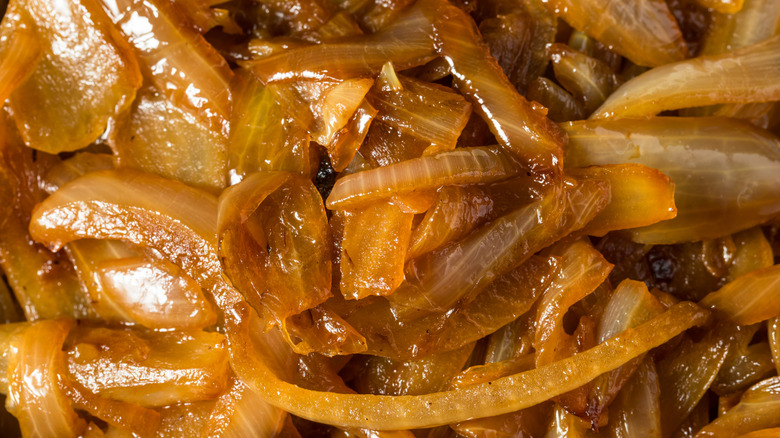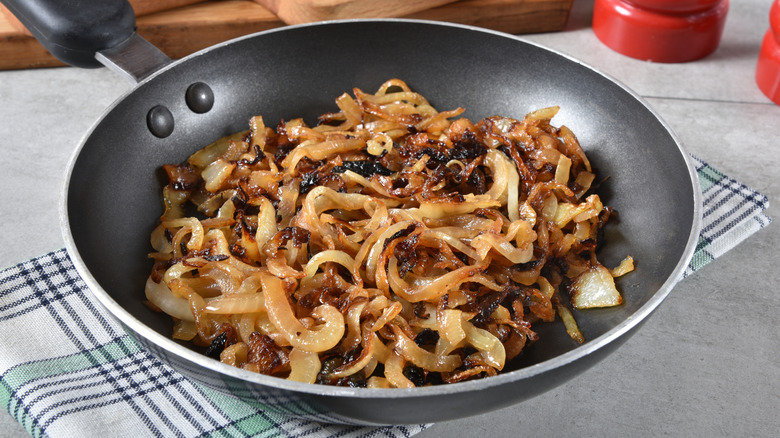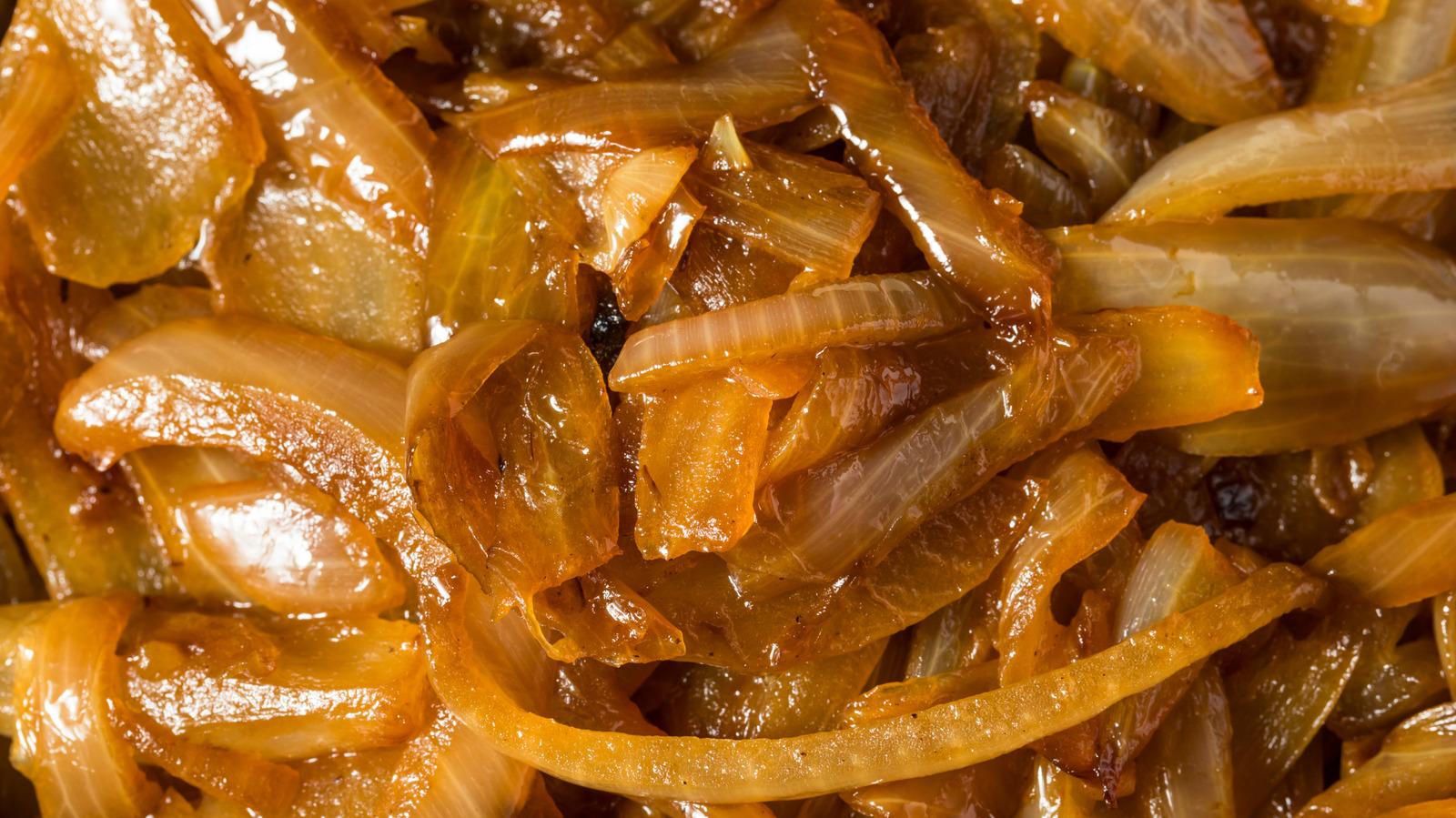
Bhofack2/Getty Images
Caramelized onions can add a savory-sweet complexity to so many dishes, whether you turn them into a caramelized onion dip or add them to your pizzas and sandwiches. When done right, caramelization reduces the sharp pungent bite of onions, infusing them with a toasty, nutty richness instead, whilst also giving them a meaty, almost jammy texture.
Typically, you don't need much besides the onions and some sort of fat to caramelize them, but if you really want to take them to the next level, try throwing in a pinch of some sugar and salt to the mix. It's a good idea to do so for two reasons. When some salt is added to the mix, it helps extract the moisture content out of the onions (they are 89% water, after all), essentially making the overall caramelization process quicker. Salt also gives the onions an overall boost of flavor, helping the sweet and umami notes really come through whilst also dampening any bitter tones that may be present in the alliums.
Sugar, on the other, is added to onions to help with caramelization. After all, if you get into the science of it, caramelization is essentially the heating of sugar so that it browns and gives way to an array of different smells and flavor notes (like that sweet nuttiness in caramelized, as opposed to cooked, onions). Granted, onions naturally posses sugar, which is why they can be caramelized even without any added sugar on top. So why add an extra pinch ? The answer is simple: to make the caramelized onions taste sweeter and more caramel-y.
Tips to caramelize onions with salt and sugar

Msphotographic/Getty Images
The most important part about adding sugar and salt to caramelized onions is the timing and quantity. You only need a very small amount of both to enhance the flavor of your onions without overpowering them — about a teaspoon of sugar and half that of salt for every four onions or so. The trick is to add them together with the onions at the start of the cooking process so that the salt has time to draw out the water from the alliums and sugar can start caramelizing them.
Another trick chefs use to get perfectly caramelized onions is to pick a skillet that's large enough for the alliums — size is of utmost importance here. You want there to be enough space in the pan for the moisture that the salt will draw out to cook off, and crowding will only steam them instead, resulting in soggier, paler caramelized onions. In general, you'll need at least a 12-inch pan for around four onions, and you can use a bigger or smaller one depending on how many alliums you're caramelizing. From there, caramelize your onions as you usually would, with patience and a close eye — salt and sugar don't alter the actual cooking process. They're a simple, relatively straightforward addition that only make your caramelized onions all the better.



